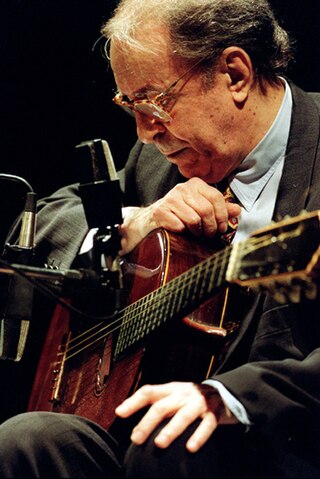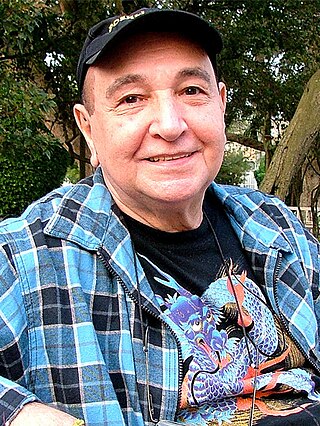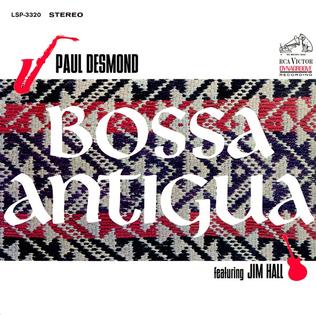
Like a Virgin is the second studio album by American singer and songwriter Madonna, released on November 12, 1984, by Sire Records. Following the success of her 1983 self-titled debut album, Madonna was eager to start working on its follow-up. She selected Nile Rodgers to produce the album due to his work on Let's Dance (1983) by David Bowie, which she was a fan of. To ensure it be exactly as she envisioned it, Madonna chose all the songs for the album: She penned six of her own, five of which were co-written with former boyfriend and collaborator Steve Bray, and six written by other artists. Recording sessions took place at Power Station Studio in New York City. Rodgers enlisted the help of his former Chic bandmates Bernard Edwards and Tony Thompson.

Saturday Night Fever is the soundtrack album from the 1977 film Saturday Night Fever starring John Travolta. The soundtrack was released on November 15, 1977 by RSO Records. Prior to the release of Thriller by Michael Jackson, Saturday Night Fever was the best-selling album in music history, and still ranks among the best-selling soundtrack albums worldwide, with sales figures of over 40 million copies.
Bossa nova is a relaxed style of samba developed in the late 1950s and early 1960s in Rio de Janeiro, Brazil. It is mainly characterized by a "different beat" that altered the harmonies with the introduction of unconventional chords and an innovative syncopation of traditional samba from a single rhythmic division. The "bossa nova beat" is characteristic of a samba style and not of an autonomous genre. The bossa nova wave became popular around the world; this increased popularity helped to renew samba and contributed to the modernization of Brazilian music in general.

Antônio Carlos Brasileiro de Almeida Jobim, also known as Tom Jobim, was a Brazilian composer, pianist, guitarist, songwriter, arranger, and singer. Considered one of the great exponents of Brazilian music, Jobim internationalized bossa nova and, with the help of important American artists, merged it with jazz in the 1960s to create a new sound, with popular success. As a result, he is sometimes known as the "father of bossa nova".

Stan Getz was an American jazz saxophonist. Playing primarily the tenor saxophone, Getz was known as "The Sound" because of his warm, lyrical tone, with his prime influence being the wispy, mellow timbre of his idol, Lester Young. Coming to prominence in the late 1940s with Woody Herman's big band, Getz is described by critic Scott Yanow as "one of the all-time great tenor saxophonists". Getz performed in bebop and cool jazz groups. Influenced by João Gilberto and Antônio Carlos Jobim, he also helped popularize bossa nova in the United States with the hit 1964 single "The Girl from Ipanema".

João Gilberto was a Brazilian guitarist, singer, and composer who was a pioneer of the musical genre of bossa nova in the late 1950s. Around the world, he was often called the "father of bossa nova"; in his native Brazil, he was referred to as "O Mito" . In 1965, the album Getz/Gilberto was the first jazz record to win the Grammy Award for Album of the Year. It also won Best Jazz Instrumental Album – Individual or Group and Best Engineered Album, Non-Classical. Nominated at the Grammy 1978 in the category Best Jazz Vocal Performance, album Amoroso, and winner category in Grammy 2001 with João voz e violão Best World Music Album.

"Garota de Ipanema", "The Girl from Ipanema", is a Brazilian bossa nova and jazz song. It was a worldwide hit in the mid-1960s and won a Grammy for Record of the Year in 1965. It was written in 1962, with music by Antônio Carlos Jobim and Portuguese lyrics by Vinícius de Moraes. English lyrics were written later by Norman Gimbel.

Eumir Deodato de Almeida is a Brazilian pianist, composer, arranger and record producer, primarily in jazz but who has been known for his eclectic melding of genres, such as pop, rock, disco, rhythm and blues, classical, Latin and bossa nova.

Getz/Gilberto is an album by American saxophonist Stan Getz and Brazilian guitarist João Gilberto, featuring pianist and composer Antônio Carlos Jobim, who also composed many of the tracks. It was released in March 1964 by Verve Records. The album features the vocals of Astrud Gilberto on two tracks, "Garota de Ipanema" and "Corcovado". The artwork was done by artist Olga Albizu. Getz/Gilberto is a jazz and bossa nova album and includes tracks such as "Desafinado", "Corcovado", and "Garota de Ipanema". The last received a Grammy Award for Record of the Year and started Astrud Gilberto's career. "Doralice" and "Para Machucar Meu Coração" strengthened Gilberto's and Jobim's respect for the tradition of pre-bossa nova samba.

Creed Bane Taylor V was an American record producer, best known for his work with CTI Records, which he founded in 1967. His career also included periods at Bethlehem Records, ABC-Paramount Records, Verve, and A&M Records. In the 1960s, he signed bossa nova artists from Brazil to record in the US including Antonio Carlos Jobim, Eumir Deodato, João Gilberto, Astrud Gilberto, and Airto Moreira.

Jazz Samba is a bossa nova album by Stan Getz and Charlie Byrd released by Verve Records in 1962. Jazz Samba signaled the beginning of the bossa nova craze in America. Stan Getz was the featured soloist and the tracks were arranged by Charlie Byrd, who had first heard bossa nova during a tour of Brazil in 1961.

The Composer of Desafinado, Plays is the first album by Antônio Carlos Jobim. Released in 1963, the album features a dozen instrumentals arranged by Claus Ogerman, whose work would mark the beginning of a lifelong musical relationship with Jobim. Of these twelve songs, nearly all of them are jazz standards. The opening track "The Girl from Ipanema" is believed to be the second most recorded song in history behind The Beatles' "Yesterday," and a recording of the song by Astrud Gilberto and Stan Getz became a worldwide hit in 1964.
"Summer Samba" is a 1964 bossa nova and jazz standard song by Brazilian composer Marcos Valle, with English-language lyrics by Norman Gimbel; the original Portuguese lyrics are by Paulo Sérgio Valle, the composer's brother.

João Donato de Oliveira Neto was a Brazilian jazz and bossa nova pianist as well as a trombonist from Rio Branco. He first worked with Altamiro Carrilho and went on to perform with Antonio Carlos Jobim and Astrud Gilberto. Because of the area he grew up in Brasil he was able to hear Cuban music on the radio. This influence would manifest itself in many of his compositions, piano, and trombone playing. Donato's most well-known compositions include: "Amazonas", "Lugar Comum", "Simples Carinho", "Até Quem Sabe" and "Nasci Para Bailar".
Eugene Valentino Cherico was an American jazz double-bassist.

Astrud Gilberto was a Brazilian samba and bossa nova singer and songwriter. She gained international attention in the mid-1960s following her recording of the song "The Girl from Ipanema".

Astrud Gilberto, was a Brazilian samba and bossa nova singer and songwriter. Her discography consists of sixteen studio albums and two live albums on Verve Records, CTI Records, Perception Records, Audio Fidelity Records, Denon Records, Polygram Records, Pony Canyon and Magya Productions, as well as one music DVD on Coqueiro Verde Records.

Now is a studio album by Brazilian bossa nova singer Astrud Gilberto, released on Perception Records in 1972. The album was recorded at Blue Rock Studio, New York City.

Bossa Antigua is an album recorded by American jazz saxophonist Paul Desmond featuring performances recorded in 1964 which were released on the RCA Victor label. The album title is a word play on bossa nova, the genre of Brazilian music that inspired the album. "Bossa Antigua" loosely translates in English to "old thing", though "antigua" is a Spanish word rather than Portuguese. Antigua is also the name an island in the West Indies popular with North American tourists.

"Girl from Rio" is a song by Brazilian singer Anitta from her fifth studio album Versions of Me. It was released as the second single from the album through Warner Records on April 29, 2021. A song about Anitta's own life, it interpolates "The Girl from Ipanema" by Vinicius de Moraes and Tom Jobim. A remix of the song featuring American rapper DaBaby was released on May 21, 2021, and was sent to US and European radio stations on May 25.
















